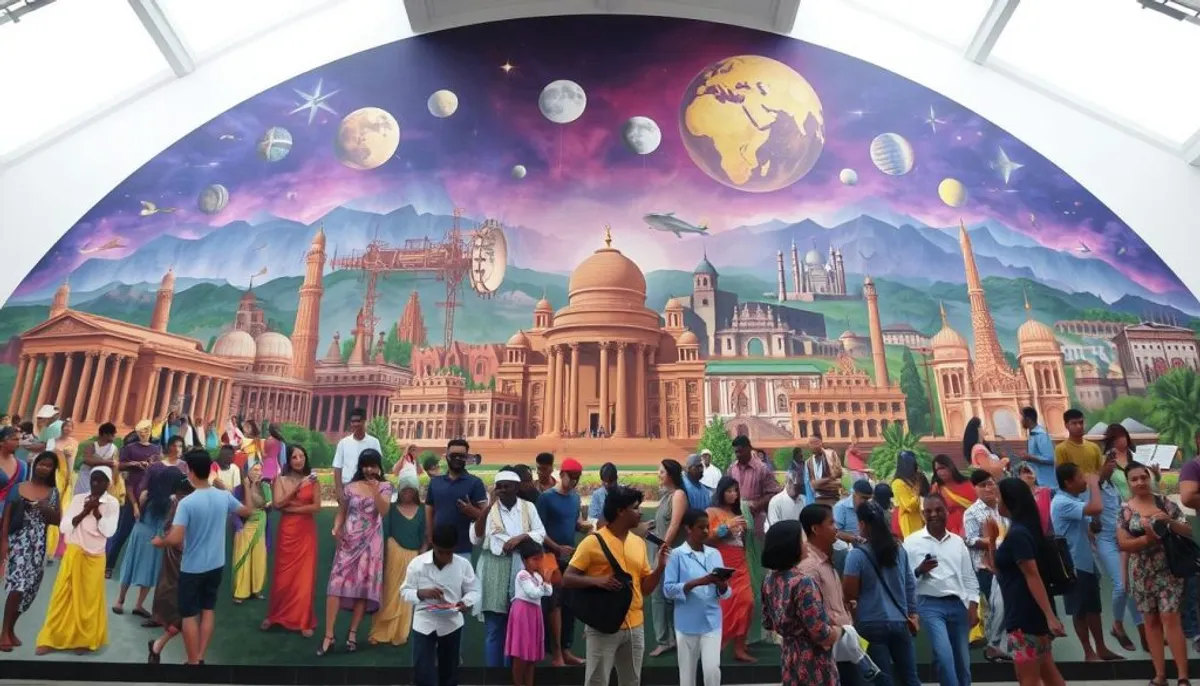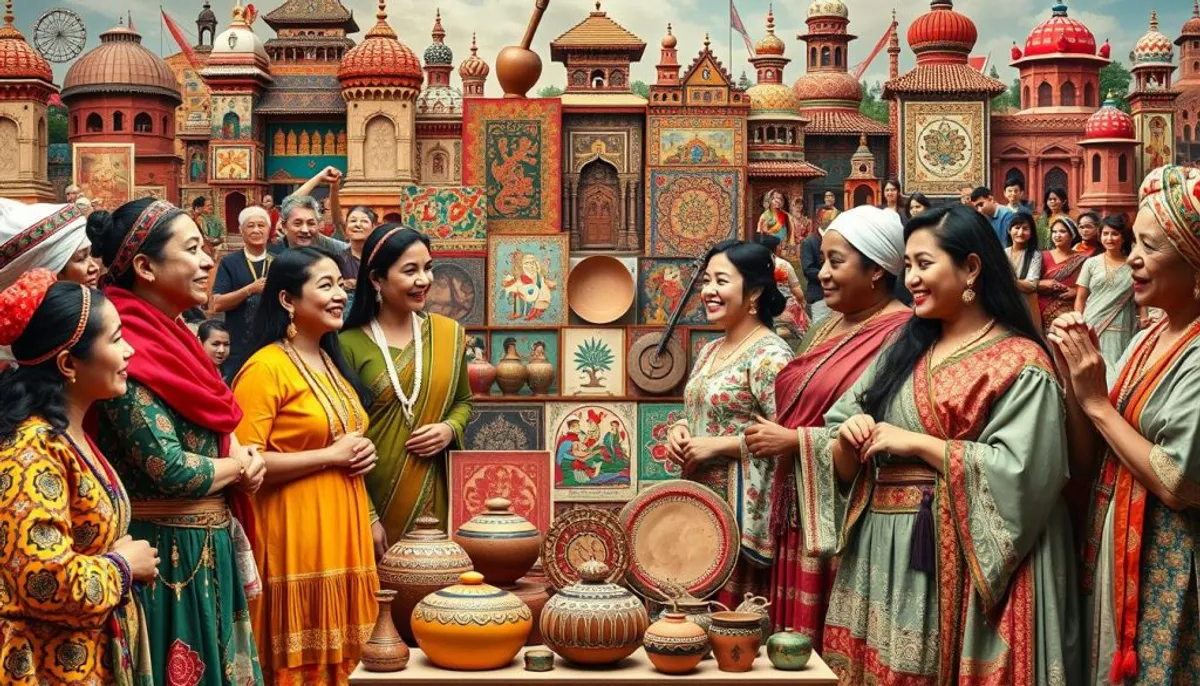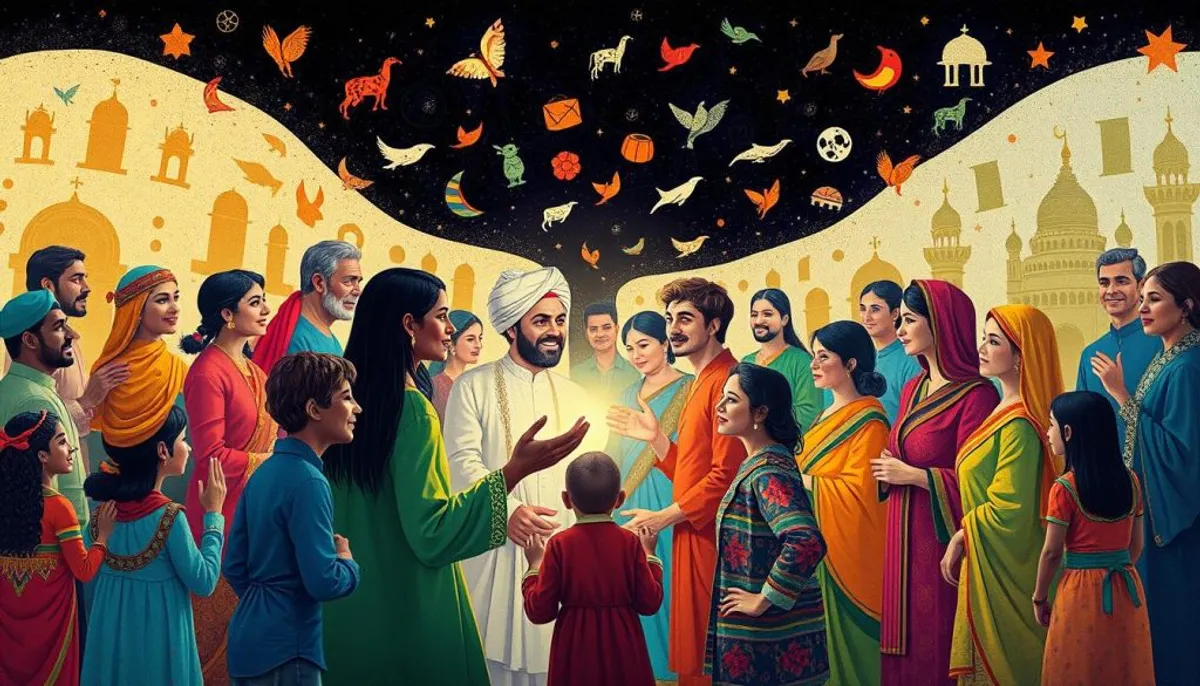Culture, fundamental in our society, has a profound influence on our daily lives. It shapes our identity and enriches our heritage. But what is its role in our current society? This question will guide us in our exploration.

Culture encompasses our values, beliefs, languages, arts, and knowledge. It gives profound meaning to our existence and guides our growth, both individual and collective. Its importance is so great that 100% of local governments must integrate it into their sustainable development strategies, as established by the Agenda 21 for culture in 2004.
Culture has a major impact on our society. It shapes our thinking, our behavior, and our interaction with others. In France, the NOTRe law of 2015 recognized the importance of culture by sharing this competence among all local authorities.
In this guide, we will explore the multiple facets of culture and its crucial role in our society. We will examine how it influences our identity, contributes to sustainable development, and impacts productivity at work. Get ready to discover the transformative impact of culture!
Definition and Importance of Culture in Our Modern Society
Culture is an essential pillar of our contemporary society. It shapes our collective identity and our daily interactions. In 1952, Kroeber and Kluckhohn listed more than 150 definitions of the term "culture." This diversity highlights its complexity and depth.
Culture as Common Heritage and Collective Identity
Culture is our common heritage, encompassing our traditions, values, and beliefs. It manifests through language, symbols, and artistic forms. Flags, for example, serve as cultural symbols, embodying unity within communities.

The Fundamental Dimensions of Culture
Culture is divided into three categories:
- Artifacts (material culture)
- Mentifacts (non-material culture)
- Sociofacts (cultural institutions)
Non-material culture, including dance, theater, and music, plays a crucial role in distinguishing cultures. Cultural policies aim to protect and promote these distinctive aspects.
The Impact of Culture on Social Development
Culture exerts a profound influence on our social development. Cultural industries play an economic role and create jobs. Companies that value cultural diversity see increased employee retention, reaching 20% more.
In 2020, 15% of French people adopted digital cultural practices, showing the constant evolution of our cultural landscape. Culture remains a key driver of our society, stimulating creativity, innovation, and social solidarity.
What is the Role of Culture in Society
Culture occupies a prominent place in our society, shaping our collective and individual identity. It acts as a vector of cultural transmission, allowing the sharing of knowledge and values between generations. This transmission is essential for maintaining historical and social continuity.
A crucial aspect of culture is its role in intercultural dialogue. In an increasingly interconnected world, culture facilitates mutual understanding between different communities. It builds bridges, fosters empathy, and contributes to social cohesion.

Culture also has a significant influence as a cultural soft power in international relations. It allows nations to project their influence gently, through art, music, literature, and other forms of cultural expression. This soft power can influence perceptions and attitudes on a global scale.
Cultural rights, recognized as fundamental, guarantee everyone access to the cultural resources necessary to freely live their identification process. They also ensure the ability to participate in and shape existing cultures, thereby strengthening the social fabric of our society.
In business, culture plays an equally important role. According to a study, 74% of managers believe that corporate culture influences the overall performance of their organization. Moreover, 85% of leaders state that it is a key factor in attracting and retaining talent.
The Fundamental Pillars of Civic Culture
Civic culture rests on essential foundations that shape our society. It plays a crucial role in preserving cultural identity and promoting cultural diversity in the face of cultural globalization.
Cultural Rights as Fundamental Rights
Cultural rights are recognized as fundamental human rights. They contribute to individual and collective flourishing. The Council of Europe considers cultural participation as an essential right. This recognition underscores the importance of access to culture for all, regardless of origin or social status.
Cultural Participation and Democracy
Cultural participation strengthens democracy and fosters civic engagement. It has positive effects on various aspects of society:
- Reduction of school absenteeism among youth
- Improvement of behavior in class
- Decrease in juvenile delinquency
- Positive influence on drug consumption
Intercultural Dialogue and Social Cohesion
Intercultural dialogue is essential for maintaining social cohesion in a globalized world. It promotes mutual understanding and conflict management. Culture plays a key role in:
- Enhancing self-confidence and personal esteem
- Fostering pride and dignity, essential for active citizenship
- Reducing social exclusion by changing mindsets
| Aspect | Impact of Culture |
|---|---|
| Education | Improvement of the educational system's effectiveness |
| Health | Positive contribution to the health system |
| Economy | Increase in job opportunities and growth |
Contemporary Cultural Challenges and Issues
Cultural globalization is revolutionizing our society. Cultural industries, representing about 3% of global GDP, play a crucial role in the world economy. This evolution raises questions about the preservation of local identities in the face of the standardization of cultural practices.
Cultural policies must confront several major challenges:
- Combating inequalities in access to culture
- Preserving cultural diversity
- Promoting intercultural dialogue
- Supporting creation and innovation
In France, despite 50 years of cultural policies, disparities persist. Paris concentrates a disproportionate share of national cultural spending. Subsidies often benefit those who are already cultured, creating a vicious circle that harms social inclusion.
Culture remains an essential vector of social cohesion. Cultural activities in schools develop young people's critical thinking. Artistic education, integrated into many programs, stimulates creativity.
In the face of these challenges, cultural policies must adapt. The UNESCO declaration on cultural diversity (2001) and the integration of cultural rights into French law (2015) provide a framework to address these challenges. The goal: to build a society where culture is accessible to all and fosters dialogue between communities.
Conclusion
Culture is crucial for our society, shaping our collective identity and guiding our social development. The rich and diverse cultural heritage is a fundamental pillar of our understanding of the world. The impact of culture on development is also significant, and cultural transmission ensures the sustainability of our values and traditions.
The statistics are telling: in 2019, French museums and heritage sites welcomed 63.1 million visitors. Despite a decline due to the pandemic, interest in culture remains strong, with 20.5 million entries in 2021. These figures highlight the importance of culture in our economy and society.
Culture plays a key role in social inclusion. Urban and rural regeneration initiatives in Europe demonstrate this. However, obstacles persist, particularly for disadvantaged individuals, refugees, and people with disabilities. It is essential to improve access to cultural activities for all.
In conclusion, culture is essential to our society. It fosters intercultural dialogue, stimulates creativity, and contributes to our flourishing. Everyone must play a role in preserving and enriching our cultural heritage, ensuring its transmission to future generations.
RelatedRelated articles


